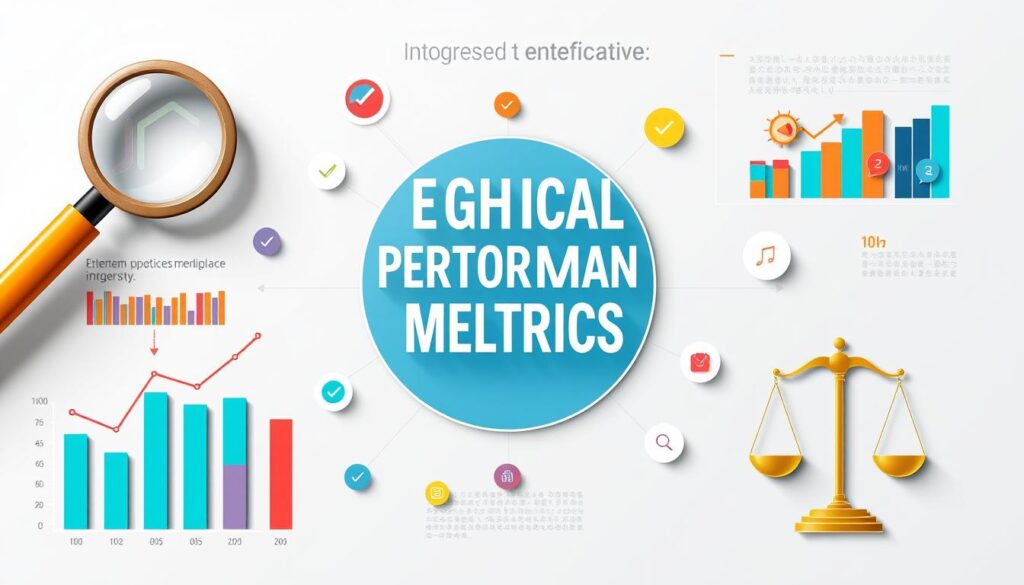Have you stood at a crossroads, facing a tough choice that could make or break your business? Every entrepreneur encounters moments that test their integrity and ethical standards. The decisions you make shape the future of your venture, reflecting your core values. You might ask, what really defines integrity in business? More so, how crucial is it in earning trust, retaining customers, and building a positive industry reputation? Spotting red flags is key to maintaining integrity in business. This involves being vigilant for potential issues or unethical behaviors, whether it’s within your own company or in potential partnerships. By remaining alert and ready to address any troubling signs, you can uphold your credibility and ensure your business operates with honesty and ethical practices. Ultimately, integrity in business not only impacts your immediate success but also determines the long-term sustainability and impact of your venture.
In a world emphasizing environmental care and ethical standards, the importance of ethics in business cannot be ignored. A single wrong move can tarnish your reputation and hurt your finances, as shown by the Enron scandal. Facing fierce competition, making ethical choices is key. It boosts employee morale and protects your company’s future. Let’s dive into why integrity and ethics are vital for entrepreneurs looking to succeed.
Key Takeaways
- Integrity builds trust in entrepreneurship, essential for long-term success.
- Establishing ethical practices enhances your company’s reputation.
- High business ethics lead to increased employee loyalty and productivity.
- Unethical behavior can result in significant legal and financial repercussions.
- Successful companies prioritize ethical standards to attract investors and customers.
Why Ethics and Integrity Matter for Entrepreneurs
Understanding ethics and integrity in business shapes your approach for success. It forms trust, the cornerstone for relationships. This affects your brand and your image positively. Ethics in business builds customer trust and loyalty. It is essential for success.
The Foundation of Trust
Trust is key in relationships with customers, partners, and workers. Showing integrity inspires confidence beyond transactions. Being transparent and honest builds long-term bonds.
Admitting mistakes and responsibility raises your ethical branding. This is similar to how some companies have built loyal followings. They committed to ethical conduct.
Building a Positive Reputation
Your ethics shape your brand’s reputation. Integrity brings respect and opens up business opportunities. An ethical business creates a positive image.
Companies like REI show that integrity strengthens your market position. It also boosts loyalty and trust.
Enhancing Customer Loyalty
Ethical practices increase customer loyalty. Treating clients with fairness and respect makes them feel they belong. This leads to more business and referrals.
Honesty makes customers come back to brands they trust. Studies show ethical businesses, like Costco, retain customers better. This shows ethics lead to success.
| Key Benefits of Ethical Practices | Impact on Business |
|---|---|
| Customer Loyalty | Increases repeat purchases and referrals |
| Supplier Reliability | Strengthens relationships through fair treatment |
| Employee Engagement | Boosts productivity and creativity |
| Investor Confidence | Secures access to capital through ethical reporting |
| Social Responsibility | Enhances brand reputation and societal impact |
The Benefits of Ethical and Trustworthy Business Practices
When companies act ethically, they build a strong base for happiness among customers and success in business. Acting with honesty and openness not only helps in winning customers’ trust but also boosts the motivation and performance of employees.
Customer Satisfaction and Retention
Businesses that are ethical often see happier customers. By being honest, like quickly solving problems and keeping promises, they gain customer trust. For instance, Patagonia involves its customers in its ethical actions, boosting sales and getting more people referred to them.
More than half of Americans avoid buying from brands they think are not ethical. This shows how important ethical actions are to keeping customers.
Employee Engagement and Productivity
Companies with a strong ethical culture have happier and more productive workers. Employees in such environments feel appreciated and are more engaged at work. This leads to a major jump in how much work they can do, which helps the business grow.
Research found that 99% of employees in ethical companies are ready to handle ethical issues. This readiness makes them feel more involved and leads to higher work performance.
Long-Term Financial Health
Being ethical also means a company will likely do well financially over time. Ethical companies attract more investors, which helps them grow steadily. Research shows these companies performed better than the Large Cap Index by 10.5% over three years.
This financial success comes from being open about their operations and being committed to doing good. This improves their profits and relationships with everyone involved.

| Aspect | Positive Impact | Statistic |
|---|---|---|
| Customer Satisfaction | Increased brand loyalty | Over 50% of consumers avoid unethical brands |
| Employee Engagement | Higher morale and productivity | 99% feel prepared to address ethical issues |
| Financial Performance | Enhanced profitability | Outperformed Large Cap Index by 10.5% |
The Challenges and Risks of Unethical and Untrustworthy Behavior
Unethical behavior can put your business at risk. A bad reputation leads to lost trust, which is hard to get back. The danger of reputation risk grows when customers leave and spread negative word. This can lead to big financial losses as you try to fix the damage.
Reputation Damage
Your company’s good name can be quickly destroyed by bad behavior. Look at Volkswagen and its emissions scandal. It faced huge fines and a drop in sales. Enron is another example where greed overtook honesty, causing mistrust among everyone involved. This kind of misconduct can make customers and employees turn away, harming morale.
Legal and Financial Consequences
Unethical actions come with legal dangers, too. Breaking rules can mean lawsuits, fines, and even prison for leaders. These issues take time and money away from your business. For example, not following laws can lead to business penalties that hurt both finances and reputation.
A table below shows some common bad practices and what they could lead to:
| Unethical Practice | Potential Consequences |
|---|---|
| Falsifying records | Legal action, fines, loss of customer trust |
| Misusing funds | Financial penalties, reputational harm |
| Exploiting employees | Decreased productivity, high turnover rates |
| Deceptive marketing practices | Loss of customers, legal repercussions |
To avoid these problems, it’s key to focus on being ethical. Putting in place strong policies, hiring people with good values, and promoting open talk can reduce risks. By valuing ethics, your business does more than protect itself. It also builds better relationships with everyone involved.

How to Develop and Maintain a Strong Ethical Culture in Your Organization
Creating a strong ethical culture in your organization is essential. It builds integrity and trust among the workforce. A robust ethical framework acts as a guide. It helps employees to follow values and align with the organization’s goals. Clear standards and ethical practices bring many benefits. These include less legal risk and more engaged employees. Here’s how to build this kind of culture.
Creating an Ethical Framework
First, define your organization’s ethics to set the behavior standards. Make a code of conduct. Update it as business and social norms change. This code should list ethical standards and the consequences of not following them. This ensures people are responsible for their actions. Studies show that clear ethical guidelines reduce legal problems. This saves a lot of resources.
Encouraging Open Communication
Open communication is key for ethical discussions. Make sure employees can talk about ethics freely and without fear. Encourage feedback and ethical conversations. This builds a transparent culture, which is crucial for trust. Offer regular check-ins and anonymous ways to report issues. When employees trust their leaders and feel valued, they’re more likely to report wrongdoings. This leads to a better culture for everyone.

How to Communicate Your Values and Expectations to Your Stakeholders
It’s vital to share your company’s values with stakeholders clearly. This builds trust and loyalty. Making your expectations clear boosts engagement. Use clear, unified messaging that reflects your values in all areas. This includes marketing, employee training, and meetings.
Effective Messaging Strategies
How you message is key to gaining stakeholder trust. With many feeling that corruption is common in business, showing integrity matters. Here are some ways to improve:
- Clarity: Make sure your messages are clear and simple.
- Consistency: Keep your value presentation the same everywhere.
- Inclusivity: Get feedback from stakeholders to make them feel involved.
- Training: Train on ethical standards so employees make good choices.
Ensuring Transparency
Being open is key to be seen as reliable and honest. Sharing your values and methods helps you handle crises better. This openness builds trust, crucial in tough times. Warren Buffett said, “Trust is like air—it’s only missed when gone.” This shows how vital trust is.

- Be open about successes and problems.
- Set up ways to monitor ethics.
- Invest in engaging stakeholders to increase accountability.
These approaches help your values and expectations connect with stakeholders. They foster ethical leadership and build trust that lasts.
| Strategy | Description | Benefits |
|---|---|---|
| Clarity | Clear, concise messaging to ensure understanding | Reduces confusion and enhances engagement |
| Consistency | Uniform messaging across all platforms | Builds stronger stakeholder relationships |
| Inclusivity | Encouraging stakeholder input in decision-making | Fosters loyalty and trust |
| Training | Empowering employees with ethical standards education | Improves ethical decision-making in the workplace |
How to Handle Ethical Dilemmas and Conflicts in Your Business Relationships
Working through ethical dilemmas in business means thinking carefully and planning. To make good ethical choices, use a clear method. This method should look at all sides of the situation. Use strategies that match your company’s ethics to keep talks and partnerships healthy.
Strategies for Ethical Decision-Making
Key strategies for making ethical choices include:
- Establish a Framework: Set up a clear ethical system in your company for making decisions.
- Engage Stakeholders: Bring stakeholders into the decision process for more perspectives.
- Encourage Open Dialogue: Make a space where everyone feels safe to talk about ethics.
- Utilize Scenario Analysis: Look at different outcomes to see how they affect relationships.
Importance of Stakeholder Perspectives
Understanding stakeholder views is key to solving ethical problems. Good stakeholder analysis lets you:
- See how decisions affect various groups.
- Have deep talks to clear up any confusion.
- Keep building trust with open talks.

Statistics show that ethical dilemmas are common in business. Not handling them well can lead to big issues. By setting strong ethical rules and including stakeholders, you make your business ties stronger and stay true to ethics.
| Strategic Element | Description | Benefits |
|---|---|---|
| Ethical Framework | A set method for making choices based on key values. | Consistent choices, better reputation. |
| Stakeholder Engagement | Getting those involved to discuss ethical issues. | Building trust, bettering relationships. |
| Open Communication | Making it okay for team members to express concerns about ethics. | Improved teamwork, fewer arguments. |
| Scenario Analysis | Looking at different possible results from choices. | Smarter decision-making, knowing potential effects. |
How to Monitor and Evaluate Your Ethical Performance and Impact
It’s vital to keep track of your ethical performance to ensure your company stays true to high ethical standards. To do this, set ethical benchmarks. This lets you see how well your company keeps its ethical promises. Using different ways to evaluate, you can uncover insights about your company’s ethics and adjust as needed.
Setting Ethical Metrics
To measure how well your company sticks to ethical rules, setting clear metrics is key. Think about these metrics:
- Employee feedback gathered through anonymous surveys
- Customer satisfaction scores reflecting perceptions of your business ethics
- Audit results showcasing compliance with established ethical guidelines
These metrics help you fully assess your ethics, showing both strengths and areas to work on. Brands like Patagonia stand out by putting ethics first. Focusing on ethics like sustainability can improve your brand and earn stakeholder trust.
Feedback Mechanisms
Strong feedback systems are essential for assessing your ethics in action. You could use:
- Anonymous surveys to understand employee views on your ethics
- Open forums for ongoing ethics discussions
- Regular performance reviews matching your company’s ethical standards
Continuous feedback helps maintain an ethical company culture. For example, Google’s ethical culture boosts employee happiness and keeps them around longer. Feedback lets you make timely changes, promoting an environment where ethical actions are valued.

How Ethics and Integrity Can Lead to Long-Term Success and Growth
In today’s world, ethics and corporate strategy are closely linked. They help businesses grow. Ethical companies like TOMS and Patagonia prove this point well. They show us that doing right brings in trust and loyalty from customers. By taking care of society and the environment, they have seen great success.
Case Studies of Successful Ethical Brands
Many ethical brands have shown great success by sticking to their principles. Here’s a look at some of them:
| Brand | Ethical Focus | Key Outcomes |
|---|---|---|
| TOMS | One-for-One model | Enhanced customer loyalty and substantial social impact |
| Patagonia | Environmental sustainability | Strong market position and high brand trust |
| Bombas | Community support and social responsibility | Doubling revenue and leading in charitable donations |
These stories tell us that being ethical can lead to more customers and growth. People nowadays care about how companies act towards society. This means companies that care about doing good can thrive in the long run.
The Role of Integrity in Innovation
Integrity is key for a company to be innovative. When leaders act ethically, it creates a safe space for sharing ideas. This trust leads to more creativity and new solutions that can help a company grow.
Studies have shown that if employees think their bosses are honest, they are happier at work. This happiness turns into better performance. This shows how important it is for companies to operate ethically. It helps in building a team that works well together.
As business keeps changing, the need for ethical companies stays important. A large number of entrepreneurs agree that ethics matter for growth. For future leaders, it’s important to face tough choices with a strong sense of right and wrong. This helps in building a company culture that values innovation and honesty.

Entrepreneur’s Integrity and Ethical Practices: Balancing Morality and Profit
Entrepreneurs often face the tough choice between ethics and profit. Making business decisions can be hard, especially when considering their effects. By putting ethics first, they build trust and improve their reputation. This approach leads to customer loyalty and strengthens the brand. Sometimes, ethical issues, like environmental concerns or labor practices, clash with making money.

Navigating Difficult Decisions
Entrepreneurs sometimes have to choose between doing what’s right and making a profit. These challenging choices can affect shareholders, employees, and the community. Using a stakeholder-focused strategy, they can keep ethics and business goals in sync. This helps maintain both integrity in business and social responsibility.
The Impact of Ethical Leadership
Leadership plays a key role in setting a company’s ethical standards. Ethical leaders influence their employees’ behaviors significantly. By showing true integrity and sticking to ethical guidelines, you motivate your team to follow suit. This leads to a positive change in the workplace. Entrepreneurs dedicated to sustainable practices and embracing diversity and inclusion make a lasting impact on society and business success.
Conclusion
In today’s world, ethics and integrity in business can’t be emphasized enough. These practices are key for gaining trust with everyone involved. With integrity, your business can grow sustainably. This not only boosts your reputation but also makes you stand out against less principled competition.
Having strong ethics helps keep customers coming back. Studies show that ethical companies are more profitable and resilient. The downfalls of Enron and Volkswagen teach us the high cost of ignoring this. Those cases show the financial and reputational dangers of unethical behavior.
Putting ethics first attracts employees who share your values. People these days want to work for firms that do good in the world. By promoting transparency and responsibility, you boost your brand. This approach leads to long-term success and positive community impact.









